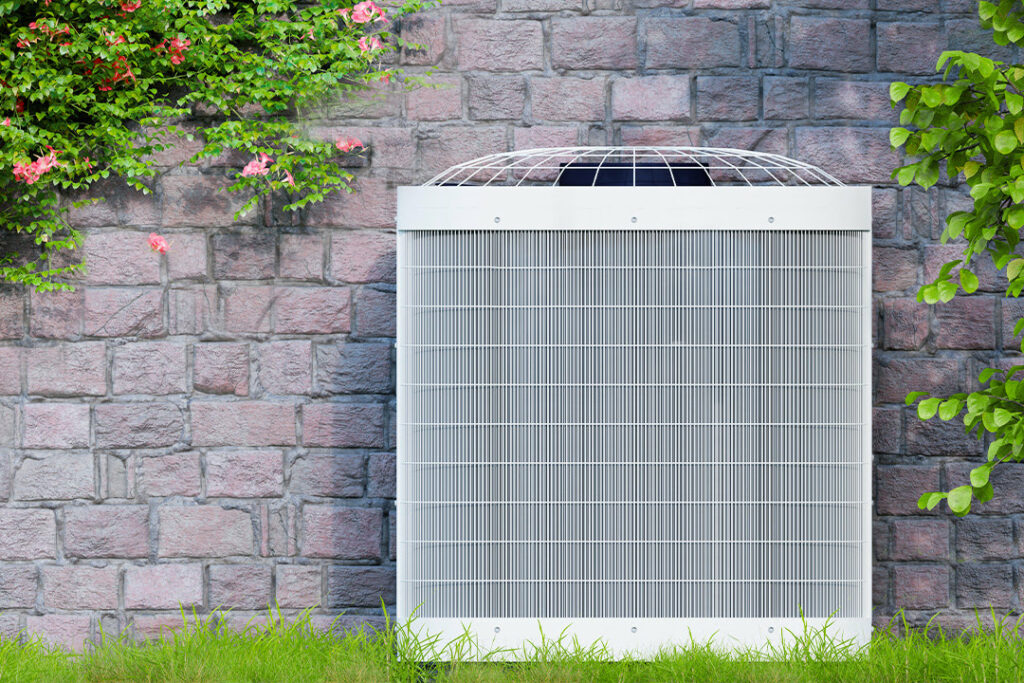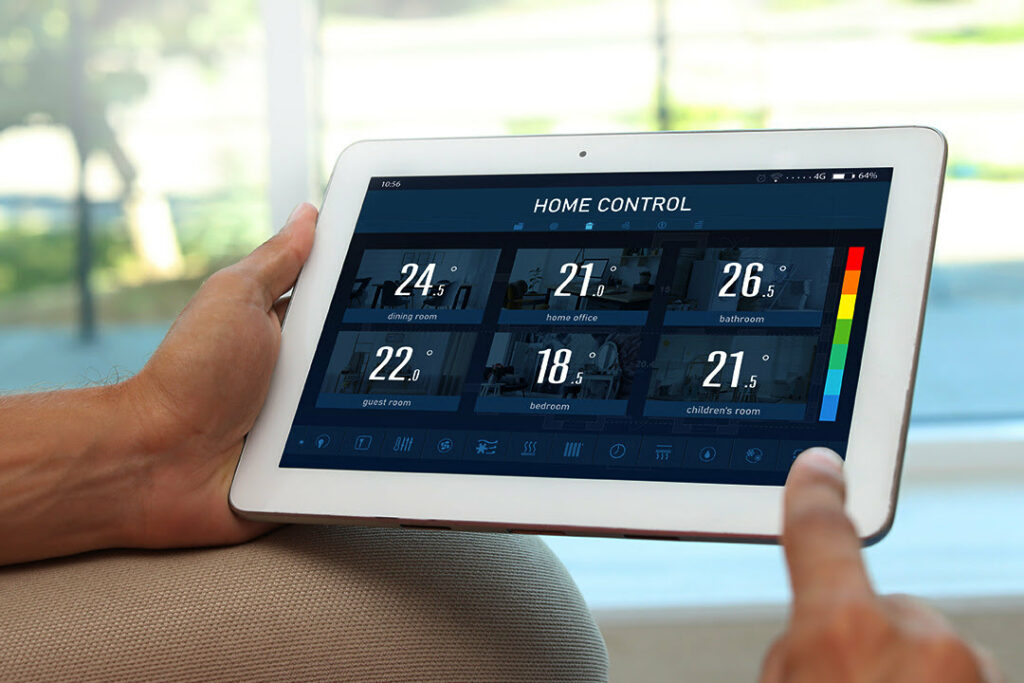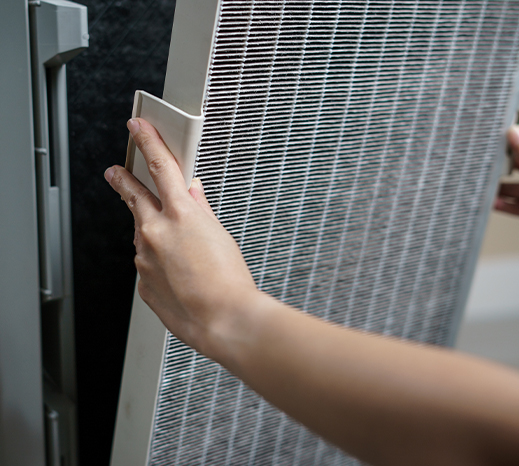Air Conditioning in Waterloo and Listowel, Home Comfort, HVAC
Can you make your AC quieter? Turns out there are a few different ways to help your cooling equipment make less noise—and the team here at Cross Heating & Air Conditioning is here to show you what they are! Read on to learn about muffling your ducts and other easy noise-reduction tips.
...

At Cross Heating & Air Conditioning, we know that air conditioners need to do more than cool down your home—they also need to be quiet enough that you can run them throughout the hottest parts of the year without being distracted or kept up at night! But what’s the best way to make your air conditioner quieter without impacting its performance?
Not to worry—the team from Cross Heating & Air Conditioning is here to share what we know from our years of performing successful AC repairs. Read on for our best tips and tricks to help you keep your AC quiet and your home comfortable during those sweltering Ontario summers.
Don’t All Air Conditioners Make Noise?
All air conditioners make some noise while they operate—but it shouldn’t be enough to bother you or interrupt your sleep at night! If the noise your AC makes is more than a quiet humming or buzzing sound, you might have an air conditioner maintenance issue on your hands.

What Causes Noisy Air Conditioners?
Noisy air conditioners can be caused by a variety of issues, but here are the main culprits:
- Loose parts: Over time, screws, bolts, or fan blades often become loose, resulting in rattling or buzzing noises while the motor runs.
- Debris: Leaves, twigs, or other debris in your outdoor unit can lead to whistling or grinding sounds if they drift into the condenser.
- Duct problems: Improperly sealed or damaged ducts can cause whistling or whooshing noises as air moves through them.
- Old or worn-out components: An old compressor, motor, or fan can make loud, disruptive sounds, especially if parts have not been properly lubricated or if your refrigerant levels are off.
Finding the Source of AC Noise Problems
The best way to locate the noise source is by carefully listening to different areas (like the outdoor unit or cold air return in your central furnace) and narrowing down where the noise is loudest. Use a long screwdriver or a mechanic’s stethoscope to help isolate the sound. Always remember to turn off the unit before checking inside for loose parts or debris—and call for help if you don’t feel comfortable checking inside your AC by yourself!
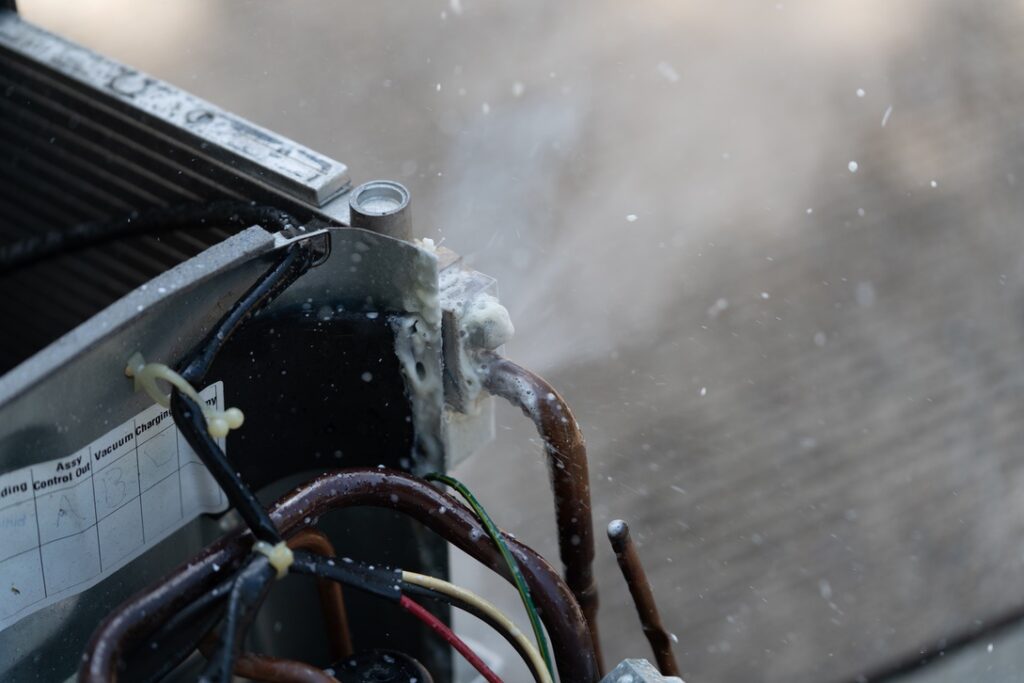
Why You Shouldn’t Just Ignore Air Conditioner Noise
Beyond causing annoyance and potentially disrupting your sleep, a noisy air conditioner can also be a sign of more serious issues, and may cause any of the following parts to fail if they are not serviced in a timely manner:
- Blower fan and motor
- Condenser
- Compressor
- Refrigerant lines (leaks often accompany or cause compressor failure)
If not addressed promptly, these issues can lead to expensive repairs, decreased efficiency, and a shorter lifespan for your unit—so it’s important to call for help as soon as you notice them.
Easy Steps for Making Your AC Quieter
If you need to keep running your AC while you’re waiting for our service technicians, there are several steps you can take to reduce the noise it’s causing:
- Regularly inspect your outdoor unit for debris and clear it out
- Tighten any loose parts
- Have your ductwork inspected for leaks or damage
- Install sound blankets around your compressor or the entire outdoor unit
- Consider installing a noise-reducing fence or shrubbery around your outdoor unit
- Use duct mufflers or air duct silencers (ask us about how to buy or install these)
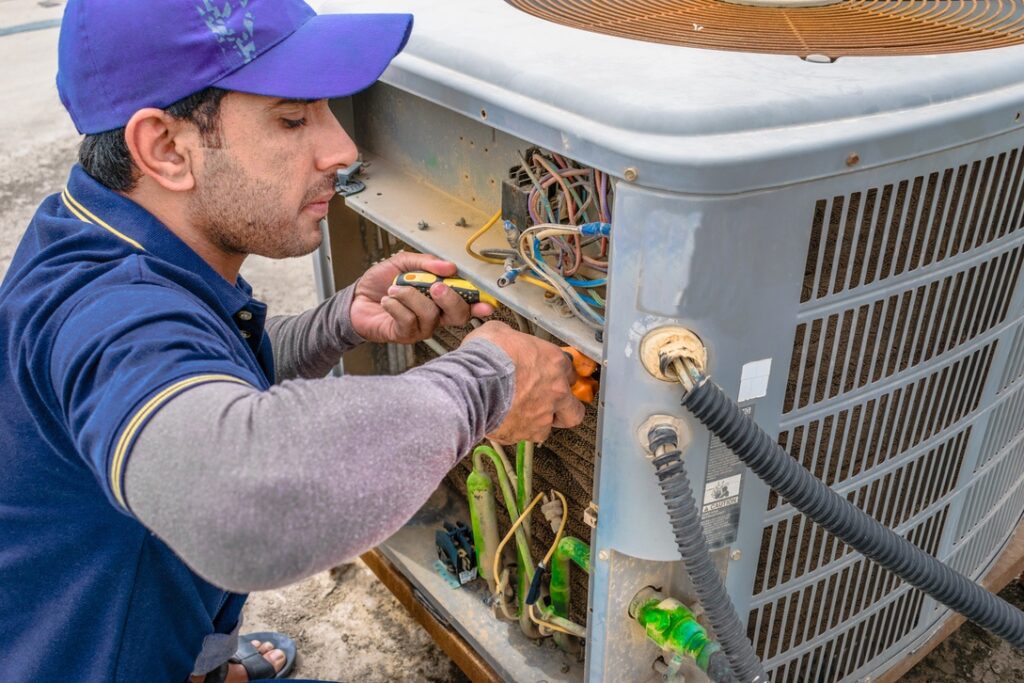
Preventing Noise with Regular AC Maintenance
They say an ounce of prevention is worth a pound of cure—and regular maintenance is key to a quiet and efficient air conditioner. This includes:
- Changing filters regularly (at least once a month)
- Scheduling professional AC tune-ups at least once a year
- Keeping the area around your outdoor unit clear
The Benefits of Buying a Quiet Air Conditioner
You can also avoid having to noise-proof your air conditioner by simply buying a quiet modern model. Here are some tips for picking out a new AC that won’t distract you when you run it.
- Look for units with a low decibel (dB) rating, typically under 60dB. We can help you find a low-volume option when you call us about your new AC installation.
- Consider variable speed air conditioners, which often run quieter by adjusting their speed to match the cooling needs instead of running full blast all the time. These units can also provide better energy efficiency for your home.
Quiet Alternatives to Central Air Conditioning
Ductless mini-split systems, evaporative coolers, and heat pumps may all be quieter options compared to traditional central air conditioners. However, their effectiveness will depend on your specific home and climate.
- Ductless mini-split air conditioners have an outdoor compressor linked directly to the indoor unit through the exterior wall. This allows them to bypass the noise issues that leaky ducts can cause, making them best-suited for homes that do not have pre-existing ductwork.
- Heat pumps provide versatile heating and cooling from the same unit and are powered by electricity instead of burning fuel. While central heat pumps produce about the same amount of noise as a central AC, ductless heat pumps can be significantly quieter.
Getting Professional Help for Your Noisy Air Conditioner
It’s okay to try the tasks above to lower your AC’s noise level, but be careful not to tamper with any sensitive components if you want to preserve your warranty. If the noise continues after your DIY troubleshooting, or if you notice a sudden, loud sound, it's time to call in the professionals. Remember, ignoring a noisy air conditioner can lead to more serious and costly problems down the line.
When you need help with your cooling equipment, contact Cross Heating & Air Conditioning. We're always here to help make your summer days and nights more comfortable!

